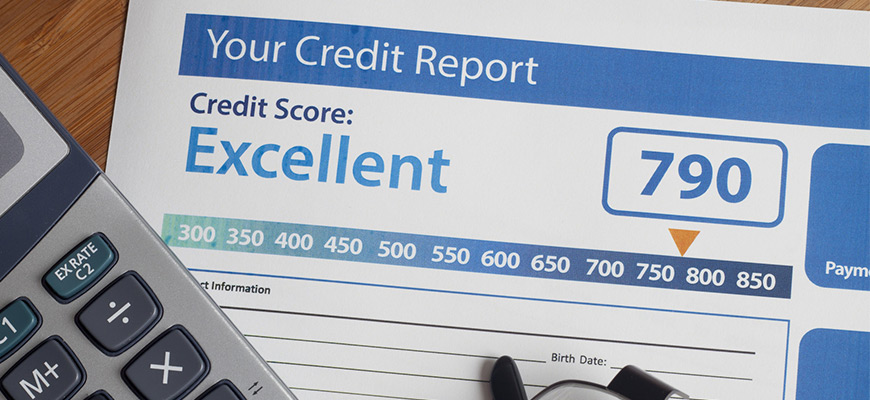Many people use the terms credit score and credit report interchangeably. Although the two are related, credit scores and credit reports are in fact different from each other.
A credit score is a number between 300 and 900 that represents a borrower’s creditworthiness. A credit report is a record of a borrower’s credit history used by lenders to assess the borrower’s creditworthiness. Let’s take a deeper dive into the differences between your credit score and your credit report.
Credit Score
What is a credit score?A credit score is a three-digit number that lenders use to evaluate the creditworthiness of you, the borrower. Anyone who uses credit is assigned a credit score. Your credit score can range from 300 to 900 at any given time. It’s based on careful analysis of the information found on your credit report. It’s used by lenders to determine whether to approve your application for credit, such as credit cards, lines of credit, or auto loans.
Who generates my credit score?The major credit bureaus generate your credit score. In Canada, there are two major credit bureaus: Equifax and TransUnion. Although your credit score will fall between 300 and 900 with either, Equifax and TransUnion each have their credit scoring models. Equifax and TransUnion also have several different versions of its credit scores available to lenders.
Is my credit score included in credit reports?Your credit score may or may not be included with your credit report, depending on the credit bureau. Your credit score will be included when lenders pull your credit report to review your credit application. However, the lender isn’t supposed to show you its version of the credit report. The only version of the credit report you have available is the consumer version provided by credit bureaus.
The consumer version of the credit report doesn’t typically include your credit score, although websites like Borrowell may show your credit score for free, along with your credit report.
How can I get my credit score? You can get your Equifax credit score in Canada for free by signing up for Borrowell. When you sign up, you will receive regular updates on what your credit score looks like, how it’s been impacted, and what you can do personally to improve your score.
Get your free credit score with Borrowell
Sign up for Borrowell to get your credit score for free. You'll instantly see what loans and credit cards you can qualify for with your current score. You'll also get coached on how to improve your credit score. Sign up in under 3 minutes.
Get Your Free Credit Score
You can also get your credit score by signing up for a credit monitoring service directly from the credit reporting bureaus themselves. Equifax and TransUnion both offer credit score and credit monitoring services, although some of these services require monthly payments.
Why should I regularly check my credit score?There are several good reasons why you should regularly check your credit score.
You should regularly check your credit score if you’re planning to apply for credit in the coming months. Besides your income and assets, lenders will also assess you based on your credit score. You want to make sure your credit score is at the level it needs to be to qualify with a specific lender.
You also want to make sure your credit score is trending in the right direction. If you have no credit or bad credit, you should take active steps to improve your credit score. If you have good or excellent credit, you want to make sure your credit stays there. If it starts to dip, you want to figure out why your credit score dropped and takes action to stop it.
Regularly reviewing your credit score can help you spot inaccuracies. For example, a lender may say you’re late on a credit card payment when you in fact made it on time. A dip in your credit score could also be an indication of identity theft, when someone assumes your identity to take out credit fraudulently at your expense.
By spotting these inaccuracies, you can take action to rectify them right away.
Credit Report
What is a credit report?A credit report shows how responsible you are with your finances, the type of credit products you utilize and how good you are at managing them. It also shows how good of a job you’ve done at managing other financial commitments and bills.
Who makes my credit report?In Canada, the two major credit bureaus Equifax and TransUnion make your credit report. Equifax and TransUnion both put together credit reports for you, the borrower, based on your financial behaviour and history.
What information is included in my credit report?Your credit report includes a lot of information about you, the borrower. When you read your credit report, you’ll find your personal information at the top. This information includes your full name, social insurance number, date of birth and current and previous addresses.
Below that you’ll see your credit information. This section has any credit accounts you’ve opened and closed. Credit accounts include credit cards, student loans, lines of credit, car loans, and mortgages. For each credit account, you’ll see information such as the type of account, when the account was opened, the credit limit and the current balance.
Next up are credit inquiries. This section shows the most recent lenders who have requested a copy of your credit report. Finally, you’ll see any collections and public records, such as bankruptcies, consumer proposals, credit counseling and judgments.
How can I get my credit report?You can download your Equifax credit report for free by signing up for Borrowell. When you sign up for Borrowell, you can download and print a PDF version of your Equifax credit report whenever you like. You could also obtain your credit report directly from Equifax and TransUnion. You can receive one free credit report per year by mail. If you’d like instant or on-demand credit report access from Equifax or TransUnion, you will need to pay a premium fee or monthly subscription fee.
Download your Equifax credit report for free
Sign up for Borrowell to download and print your Equifax credit report for free. You can access your credit report on-demand and receive weekly updates on how your report may have changed.
Get Your Free Credit Report
You should regularly monitor your credit report for similar reasons to why you should regularly review your credit score.
It’s a good idea to review your credit report ahead of time if you’re planning to apply for credit. That way there won’t be any surprises with the lender. For example, if you closed a credit card, but it’s still showing as opened with late payments, you can reach out to the credit card company to have that corrected on your credit report. If reaching out to your credit card provider doesn’t work, there are steps you can take to dispute credit report errors with the credit bureau involved.
By being proactive like this, your credit report will be free of errors and inaccuracies the next time you apply for credit.
Credit Score or Credit Report: Which is the Right One for Me?
Loan companies, landlords, and even new employers may look at your credit score and credit report. Here are some instances when your credit score and credit report may be reviewed.
Getting a MortgageApplying for a mortgage represents a large sum of money. For that reason, this is when a lender will want as much detail on you as possible. A lender may want to see both your Equifax and TransUnion credit scores. The lender will also want to see your full credit report to make sure you’ve made all your payments on time and that you haven’t filed for bankruptcy or a consumer proposal in the past.
Mortgage lenders also look at different areas of your finances, such as your income, assets and debts.
To qualify for the best mortgages available in Canada, you should have a credit score of 680 or above.
Buying a CarIf you’re purchasing a car and taking out a car loan or car lease, the auto lender will want to know about your credit score and credit report. A car represents a lot of money, so the auto lender will more than likely want to see your credit score and full credit report.
Auto lenders also may look at your income and debts.
To qualify for the best car loan rates, you should have a credit score of at least 630.
Getting a Credit CardSome credit card providers offer instant approvals without a credit check, but most credit card providers require a credit check. Credit card companies will usually want to see some form of your credit score and credit report, although it may not be as detailed as if you were applying for a mortgage.
You should have a credit score of 660 or above to qualify for the best premium credit cards, such as cashback or rewards cards.
Applying for a RentalDepending on the rental you’re applying for, you may need to provide the landlord with your credit score and credit report. Landlords check your credit to evaluate your likelihood to pay rent on time. They also check whether you owe rent to any previous landlords. If you are required to provide your credit report, it’s usually a truncated version of your credit report.
Applying for a New JobIf you’re applying for a new job, your new employer may want to know about your credit. An employer usually wants to know about your credit if you’re working in the financial industry. That said, they may also want to check your credit history to review your financial management skills, your organizational skills, and your overall trustworthiness. Just like applying for a rental, it’s usually a truncated version of your credit report.
The Bottom Line
Your credit score and credit report are both very important sources of information. Banks, lenders, credit card providers, and mortgage providers all review either your credit score or your credit report before approving you for credit products. Some landlords and employers even review your credit report when you apply for a rental or a new job.
By understanding the differences between your credit score and your credit report, you can have a better idea about which one will be reviewed based on the situation.
You can also keep a watchful eye on both and be proactive by regularly monitoring your score and report. Borrowell provides you with free credit score updates and allows you to download and review your Equifax credit report on demand. By signing up for Borrowell, you can make sure you have the best credit profile possible to improve your approval chances for future credit applications.








